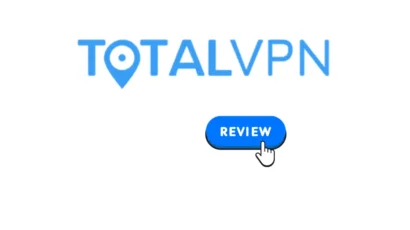Disclosure: Privacy Australia is community-supported. We may earn a commission when you buy a VPN through one of our links. Learn more.
New EU Digital ID Implementation in 2024: What You Should Know
A new “digital” ID system has been implemented across the European Union. What this implies for you is as follows.
The European Union is planning to create a mobile app that would serve as a digital passport.
On Thursday, the European Commission revealed its intention to implement a digital ID throughout the whole union. If implemented, this concept will make it possible for anybody to utilise a mobile app to check their driver’s licence or proof of age details whenever they need to do so online.
After establishing a foundation for an agreement among member nations, the EU begun testing the app, which it refers to as a “wallet”, in October 2022.
How, however, will this wallet change people’s lives? And does this mean you can no longer surf the web incognito?
What’s the Deal With This?
The EU Commission claims it needs a new identity system so that citizens do not have to give up control of their data to companies like Google and Facebook.
When asked to establish a new digital identity or check-in through a large platform, users often have no clue what happens to their information after they submit it to a website or app. Ursula von der Leyen, president of the European Commission, said as much in a speech in September.
The Commission is proposing a secure European e-identity as an alternative to, for instance, using your Facebook profile as your login for other applications. A system that allows us to decide for ourselves the data to collect and how that data will be used.
The Commission thinks digital IDs will assist the economy, make individuals feel safer while using the internet, and reduce the prevalence of online fraud. A digital ID programme, according to research by the McKinsey Global Institute, may increase a country’s GDP by 3% to 13% by 2030.
Digital Wallet Black Markets
It’s concerning that verified digital wallets are being sold, rented, and even traded in some places. Kaspersky Lab, a cybersecurity and digital privacy firm, says this is the reason for concern since account users might have their identities stolen.
Since 2022, local news outlets have reported the arrests of several people suspected of trading in legitimate digital wallet accounts. There is presently a market for registered SIM accounts that includes a confirmed digital wallet account. In the realm of social networking, prices might be tiny per profile.
According to Philippine law, doing business in this manner constitutes cybercrime. If found guilty, both the vendor and the purchaser face fines and prison time.
Is there any additional harm that data thieves may cause?
Selling your confirmed digital wallet is like giving your personal information and money to crooks who would use it for their own nefarious purposes.
Data thieves, once in possession of your private data, may do the following:
- Buying in your name.
- Playing online games requires you to provide personal information. Stolen identities are used for activities such as swatting (reporting a bogus emergency to law enforcement to come to your location to threaten you) and doxing (posting your home address and phone number online for profit, amusement, or humiliation).
- Participate in online gambling using your real identity. Networks of thousands of fake accounts are created by fraudsters who use stolen personal information and credit card details to rack up “winnings” and redeem them. Because of the strategic elements involved, internet poker and blackjack are particularly prone to this kind of cheating.
- Make it simpler for them to use your credit by adding themselves, or an alias under their control, as an authorised user.
- Put your Social Security number to bad use. Fraudsters may use your personal information to apply for loans and benefits in your name.
- If you have used a digital wallet company’s lending services in the past and are unable to repay a loan, you may be permanently barred. (Related: What is the Dark Web?)
Conclusion
Some member states of the European Union have implemented national digital IDs with varying degrees of success. The Commission reports that 14 EU nations employ 19 different eID systems, but “take-up is low, their use is cumbersome, and business cases are limited”.
All EU solutions so far have been fragmented to varying degrees, meaning they are not applicable on a large scale. Andrus Ansip, a member of the European Parliament and a former digital commissioner, has said as much.
Will this make me a “citizen of Europe”?
This is not some kind of federalist trick. No European Digital Identity number will be issued to you, and you will always be a citizen of the country in which you now reside. The idea is that you’ll use the software on your phone to replace your national ID card.
If you live in one of the 14 EU nations that currently has a digital identification system in place, you won’t need to re-register or apply for a new digital ID; instead, the planned app would “build on” such systems to expand the ways in which you may use your existing digital ID.
It’s fine if you’re not interested. The app is optional and not required.
However, all EU member states will be obligated to provide their citizens with some kind of digital ID. The new ID will be accepted by both public and private services, but neither may force its customers to use it.
Digital rights advocate Thomas Lohninger is concerned that the Commission hasn’t considered those who don’t want a digital ID and hence would be at a disadvantage if private enterprises or governments begin offering incentives for its adoption.





